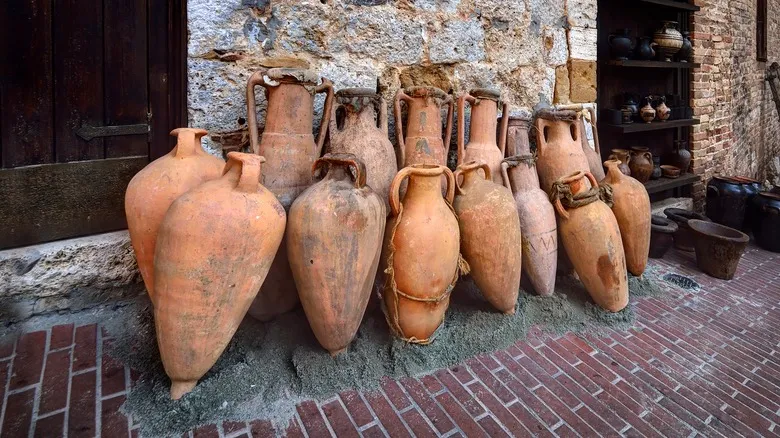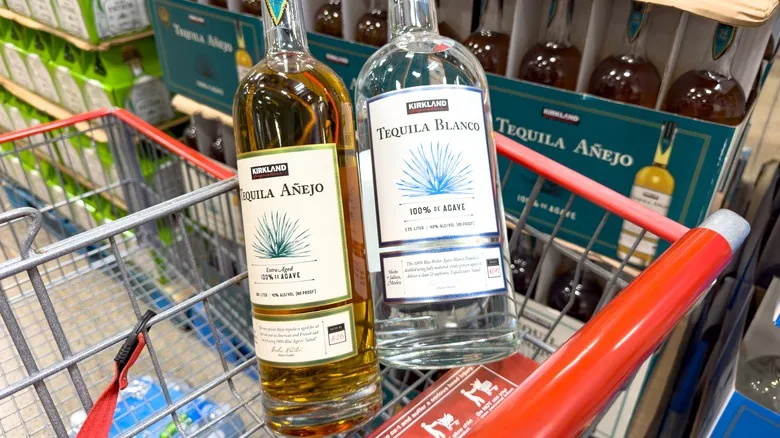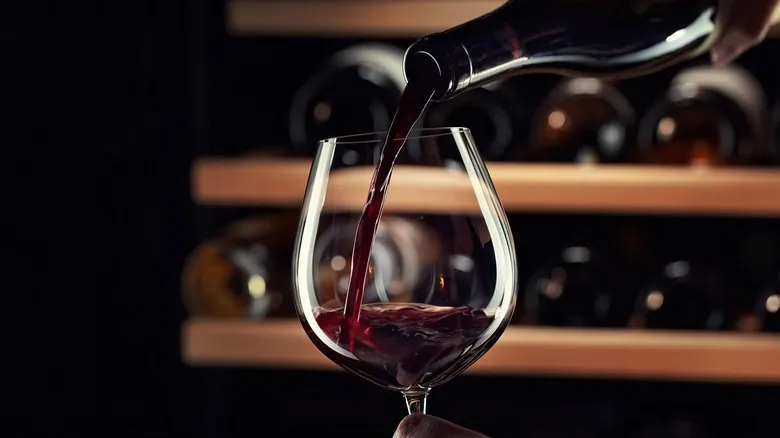The ancient origins of this unexpected addition

Although the idea of adding salt to a beverage (other than a margarita, of course) might initially seem strange, this straightforward practice actually offers numerous benefits. Moreover, this concept is far from new; it has been utilized since ancient times. In Ancient Rome, seawater was a common ingredient in winemaking, contributing an unexpected salty flavor that, as previously mentioned, enhanced the overall taste of the drink. Additionally, it helped preserve the wine, as salt is a well-known preservative. The seawater used was sourced from areas far from the shore, where the quality of sea salt was superior.
While some may scoff at a practice that dates back thousands of years, modern experiments conducted by notable winemakers demonstrate that it still yields positive results today. For instance, according to Atlas Obscura, winemaker Hervé Durand led a 2020 experiment comparing wines made with varying amounts of seawater. He discovered that while wines containing excessive salt—between 5% and 10% of the total mixture—were not optimal, those with a small amount of seawater, as little as 1%, tasted significantly better than those without any salt. The salt itself was undetectable, yet it contributed to a smoother and more balanced flavor in the wine.
How to try this hack for yourself

To experience the impact of salt on a glass of wine, the process is quite straightforward. Simply open your favorite wine bottle, pour some into a glass, and add a pinch of salt. Various types of salt, from table to kosher, can enhance the flavor, so feel free to use whatever you have available and observe how it transforms the drink.
This easy trick can elevate any wine, whether it's a rich red or a sweet white, but it’s particularly beneficial for inexpensive, overly sweet bottles. A small amount of salt can uncover the hidden savory flavors, resulting in a much more balanced taste. (So, if you're looking for an affordable red blend, you don’t have to compromise on flavor.)
However, some may disagree with this approach, arguing that each wine is meticulously crafted by skilled winemakers, and adding anything could alter its intended profile. In response, we believe that once a wine leaves the vineyard, it’s up to the drinker to determine how to enjoy it. Ultimately, the decision is yours.
Recommended

Costco Won't Sell You Alcohol In These 2 US States

Dolly Parton Breaks Into The US Booze Business With A New Wine Collection

How Total Wine Overtook Costco As The Biggest US Wine Company

Chef Kwame Onwuachi's Pro Tips For Cooking With Beer
Next up

